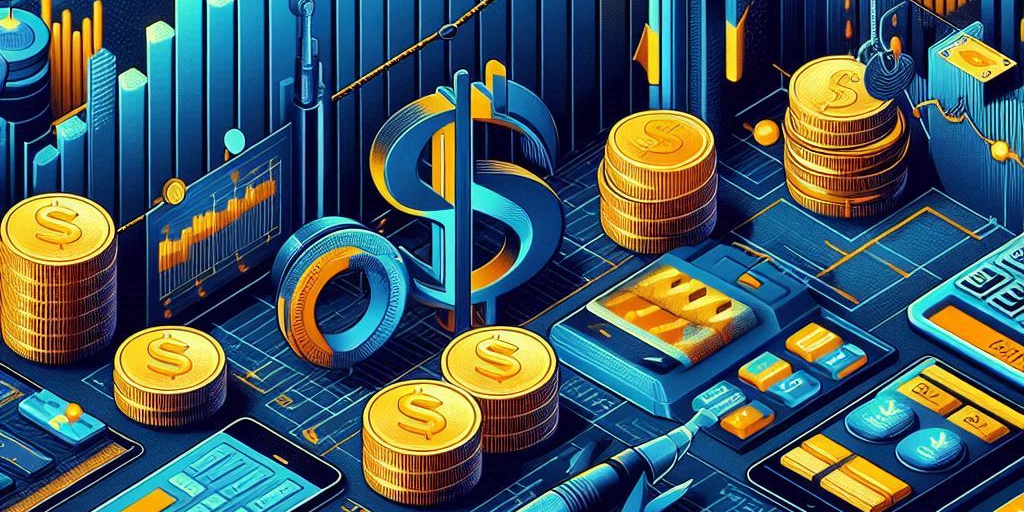03
2024/07
The trading vicious cycle: How your brain can obstruct your trading?
Despite knowing many trading theories, are you still unable to make profits? This might be because you need to understand yourself fully. Our brains often drive us to make illogical emotional sense decisions in trading terms. Your brain could be at its best or worst when making financial decisions. This means the decisions might not be correct but genuinely reflect human nature.

Good News Brings Bad Results
One of Wall Street’s oldest adages is “buy the rumor, sell the news.” It suggests that the stock market rises when savvy investors believe something big is about to happen. Once the news becomes public, these investors sell at high prices, and the stock price drops.
These savvy investors don’t have superhuman intellects; this phenomenon relates to the expectation loops in everyone’s brain. A vivid example is Celera Genomics Group, whose stock price soared on hope but plummeted on reality.
In September 1999, Celera started sequencing the human genome, and news indicated that the company might achieve one of the most significant breakthroughs in biotechnology history. By December, expectant investors had driven Celera’s stock price from $17.41 at the project’s start to a peak of $244 in early 2000.
In June 2000, Celera announced at a grand White House press conference that they had cracked the human gene code. However, their stock price plummeted by 10.2%; the next day, it fell another 12.7%. Who would have thought a scientific miracle would lead to a stock market crash?
In reality, the long-awaited good news dissipated investors’ excitement. Once investors had nothing to look forward to, they exited, and the stock crashed. It’s important to understand that buying its stock can be risky if a company’s biggest asset is investor greed.

Expected Returns Strengthen Memory
German researchers experimented to test whether anticipating economic gains could enhance memory. Neurologists used MRI scanners to scan people’s brains while showing pictures of various objects. Some pictures were paired with the chance to win one euro, while the rest had no reward.
When participants learned which pictures could earn them money, their expectation circuits fired up when those images appeared. Researchers then showed the participants a more extensive set of images, including some that had yet to be shown in the scanner.
Results showed that participants could accurately identify the images from the previous experiment and recognize which images had economic benefits. Three weeks later, participants saw the photos again. Despite 21 days having passed, they still could easily distinguish between the rewarding and non-rewarding images.
Comparing the scans from a few weeks earlier, researchers found that potential reward images activated the expectation circuits and the hippocampus, which is responsible for long-term memory. This means that initial expectations somehow embed the memory of potential rewards deeper into the brain.
This proves that anticipation of rewards is more crucial for memory formation than receiving the rewards. Expectations act as a fixative for memory, ensuring that the memory of potential rewards does not fade over time. For some, the pleasant memory of potential gains might overshadow other critical financial information.
For example, many people focus only on the highlights of profitable trades, easily ignoring the mistakes and losses. Because anticipating gains helps us remember our profits, even investments with only a 20% success rate can leave us with pleasant feelings.

Beware of High Expected Returns
First, to prevent the brain’s expectation circuits from leading to financial trouble, recognize that these circuits are a natural part of brain function. If not balanced by other brain parts, they can run amok. To avoid risks and losses caused by runaway expectations in the long run, investors can make the following five adjustments:
1、Understand that nothing is certain.Our search system is driven by the feeling of hitting it big, which hinders our ability to calculate the likelihood of striking it rich. The higher the expected return on an investment, the more cautious you should be.
2、Beware of a second stroke of luck.Be careful if you come across a stock that reminds you of one you made money on long ago! Their similarities might be coincidental. Only invest heavily after thoroughly researching the underlying business of a stock.
3、Limit potential losses with fixed funds.To prevent yourself from taking too many risks in the market, limit the risk level of your funds. Trade with only a fixed portion of your money and keep the rest secure. Set an upper limit for speculative trades and invest at least 90% of your funds in low-cost, diversified index funds covering all categories of stocks in the market. Never touch the securely stored funds, regardless of market conditions.

4、Resist the allure of suggestions.The stock market constantly sends signals tempting you to enter. To improve self-control, start by clearing your surroundings. Turn off financial channels on TV, avoid peeking at stock prices on brokers’ electronic displays, and stop checking stock prices online.
5、Think twice before acting.Recognize that the total risk and return is a far more significant driver of your behavior than the small probability of gain. Avoid making financial decisions when enticed by the prospect of huge returns. When confused by expected gains, distract yourself, calm down, and reconsider.
By understanding and managing these psychological tendencies, you can better navigate the financial markets and avoid the pitfalls that often accompany high expectations.





